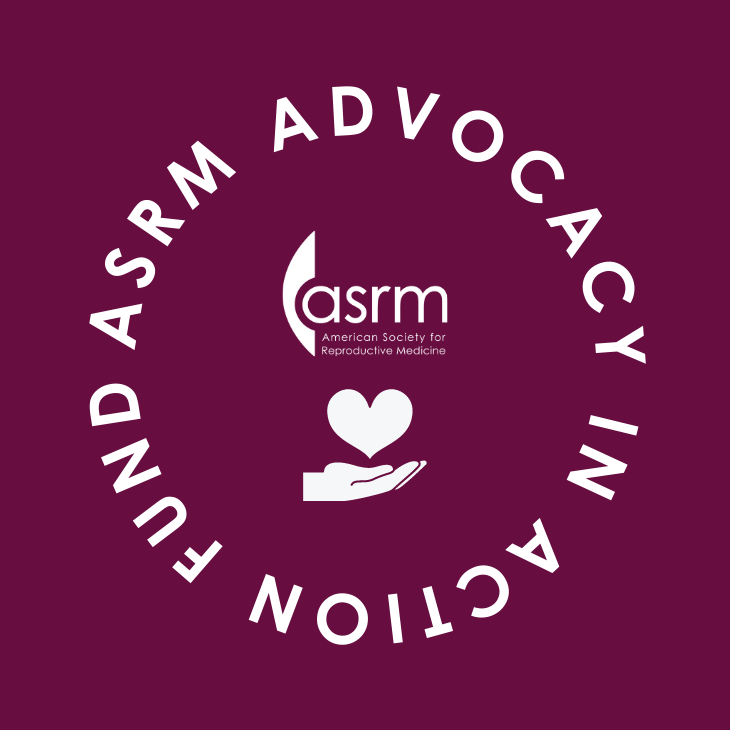
It takes more than one
Why IVF patients often need multiple embryos to
have a baby
It takes more than one
Not all eggs fertilize
In human reproduction, a single egg is released during each menstrual cycle. While research shows that approximately 80% of those having unprotected sex over the course of a year will become pregnant, many more eggs will never fertilize or lead to a pregnancy, while some eggs that do fertilize do not implant in the uterus.Many eggs fertilize but do not continue to grow and develop into an embryo
During the in vitro fertilization (IVF) process, usually only 70% of mature eggs fertilize, and of those fertilized eggs, only 50% continue to develop into a blastocyst which can be transferred into a uterus.Even if fertilized eggs grow into embryos, not all embryos implant to create a pregnancy
It is estimated that, in people who have unprotected sex, only about half of fertilized eggs successfully implant into the uterus to initiate a pregnancy.¹ During the IVF process, fertilized eggs are cultured in the lab, and those that divide and develop to the blastocyst stage (achieved after 5 days and enough cell divisions so that there are around 60-80 cells) are further evaluated, in some cases using genetic testing. Of those that reach this stage, the embryos determined to have the best chance at resulting in a healthy pregnancy and live birth are transferred, one at a time, into the patient in hopes of establishing a pregnancy.Transferring one embryo at a time is best medical practice
Advances in science and medicine have led to improved pregnancy outcomes over the last three decades. ASRM guidelines make clear that transferring one embryo – in hopes of it developing into a single baby (or singleton) – is best practice. Even twin births significantly increase the risks of obstetrical complications, including maternal and fetal morbidities. Accordingly, ASRM practice guidelines in most cases recommend transferring a single embryo during an IVF cycle, and data shows this has successfully lowered the number of multiple gestations and led to healthier birth outcomes.What happens to the other embryos?
Often, a patient will have more than one embryo that is suitable for transfer. At the patient’s request, those embryos can be cryopreserved for future use. If the first transfer does not result in a birth, or if the patient desires additional children, the embryos will be available for their use. When a patient decides that their family building journey is complete, they can decide what will happen with the remaining embryos. Some patients choose to continue to store them. Some may opt to discard them. Some may choose to donate them for research. Some patients seek to donate them for use by another patient or couple seeking to have a child.For almost a century, the American Society for Reproductive Medicine (ASRM) has been the global leader in multidisciplinary reproductive medicine research, ethical practice, and education. ASRM impacts reproductive care and science worldwide by creating funding opportunities for advancing reproduction research and discovery, by providing evidence-based education and public health information, and by advocating for reproductive health care professionals and the patients they serve. With members in more than 100 countries, the Society is headquartered in Washington, DC, with additional operations in Birmingham, AL. www.asrm.org | publicaffairs@asrm.org
¹ Jarvis, S. (2016), Clarifying the Scope of Conceptual Transfer. Language Learning, 66: 608-635. https://doi.org/10.1111/lang.12154
Resources For You
More Reproductive RIghts Resources
Advocacy
ASRM Launches National Campaign in Support of Reproductive Rights Ballot Measures
ASRM launches a national campaign supporting reproductive rights ballot measures in 10 states with ads, endorsements, and voter engagement efforts.
View the Press ReleaseFertility Care Gets Important Win in California
ASRM celebrates California's SB 729, expanding IVF coverage for same-sex couples and singles, advancing equitable fertility care access.
View the Press ReleaseASRM on Increased Availability of Fertility Coverage for Federal Employees
We are pleased with the news shared by OPM today showing more carriers will be providing infertility benefits to federal employees in the coming year.
View the Press ReleaseASRM and National Voter Registration Day: Let’s Get #VoteReady!
Join ASRM in recognizing National Voter Registration Day! Verify your voter registration today to ensure a seamless voting experience this November.
View the Press ReleaseNation’s Leading Professional Group for Fertility Care Professionals Calls for Passage of Right to IVF Act
ASRM applauds Majority Leader Schumer’s decision to seek reconsideration of the Right to IVF Act.
View the Press ReleaseTrump Calls for IVF Coverage, California Legislature Sends IVF Mandate Bill to Governor
The California General Assembly approved a bill mandating most private health insurance plans to provide coverage for In Vitro Fertilization (IVF).
View the Press ReleaseAdvocacy in Action
Join the ASRM Advocacy in Action campaign by making a tax-deductible charitable gift Be part of Advocacy in ActionGet Vot-ER Ready This National Patient Advocacy Day!
Celebrate National Patient Advocacy Day by boosting civic engagement! Order your free Vot-ER badge to help patients register to vote and promote healthy communities.
View the Press ReleaseNational Infertility Awareness Week
April 20-26, 2025, is National Infertility Awareness Week (NIAW)!
View the NIAW ToolkitASRM marks World IVF Day by doing what we do best – advocating for access to reproductive health care by calling for a House floor vote on the Right to IVF Act
ASRM observed World IVF Day, the day marking the birth of the world’s first IVF baby in 1978, by continuing its advocacy for improvements in IVF policy.
View the Press ReleaseASRM announces support for HOPE with Fertility Services Act
The American Society for Reproductive Medicine is proud to endorse the HOPE with Fertility Services Act (HR 8821).
View the Press ReleaseASRM Responds to Senate Vote on IVF Bill
ASRM is disappointed that a filibuster prevented the passage of the Right to IVF Act.
View the Press ReleaseASRM Calls for Passage of Family Building Bill
It would increase access to IVF treatments for all Americans, including active-duty service members, veterans, and federal employees.
View the Press ReleaseASRM publishes IVF one-pagers for media use
The documents lay out the clinical IVF process, summarize oversight of IVF in the U.S., and explain how lawmakers can support access to IVF.
View the Press ReleaseSART Fertility Experts - Advocacy and Reproductive Access
Dr. Cristin Slater and Betsy Campbell from RESOLVE discuss: barriers to infertility care; opportunities to get infertility care; and recent trends. Listen to the EpisodeSART Fertility Experts - Infertility Advocacy and Government Affairs
In today's episode, Dr. Mark Trolice interviews Sean Tipton about the fact that many infertility patients do not have insurance coverage for treatment. Listen to the EpisodeTake Action Now!
Like you, ASRM is extremely concerned over the decision from the Supreme Court to overturn Roe v. Wade and its impact. Learn How Your Can HelpAdvocacy Toolkit
It takes more than one
Why IVF patients often need multiple embryos to have a baby View the advocacy resourceWhat support for IVF looks like
Bipartisan support for IVF, that is responsible for the birth of over 2% of all babies born in the USA each year, will ensure that families continue to grow. View the advocacy resourceOversight of IVF in the US
In the US, medical care is regulated by a complex and comprehensive network of federal and state regulations and professional oversight. View the advocacy resourceState and Territory Infertility Insurance Laws
View insurance information by US State and Territory View Insurance Laws by U.S. StateReproductive Rights and You
The U.S. Supreme Court’s opinion in Dobbs v. Jackson Women’s Health Organization (597 U.S. __, 2022), overturned the nearly 50-year precedent set by Roe v. Wade (410 U.S. 113, 1973), which had recognized a constitutional right to abortion. The Dobbs decision has sparked a litany of changes in state laws across the nation, and more are expected. Protect Your RightsReproductive Rights
ASRM Releases Congressional Scorecard
Discover ASRM's first Congressional scorecard, detailing positions of the 118th Congress on key reproductive legislation to guide ASRM members in elections.
View the Press ReleaseASRM Launches National Campaign in Support of Reproductive Rights Ballot Measures
ASRM launches a national campaign supporting reproductive rights ballot measures in 10 states with ads, endorsements, and voter engagement efforts.
View the Press ReleaseASRM Responds to Supreme Court Ruling on Mifepristone
We are thrilled that a unanimous Supreme Court has rejected the ideologically driven lower court decisions on access to mifepristone.
View the Press ReleaseTake Action Now!
Like you, ASRM is extremely concerned over the decision from the Supreme Court to overturn Roe v. Wade and its impact. Learn How Your Can HelpAdvocacy Toolkit
What support for IVF looks like
Bipartisan support for IVF, that is responsible for the birth of over 2% of all babies born in the USA each year, will ensure that families continue to grow. View the advocacy resourceOversight of IVF in the US
In the US, medical care is regulated by a complex and comprehensive network of federal and state regulations and professional oversight. View the advocacy resourceReproductive Rights and You
The U.S. Supreme Court’s opinion in Dobbs v. Jackson Women’s Health Organization (597 U.S. __, 2022), overturned the nearly 50-year precedent set by Roe v. Wade (410 U.S. 113, 1973), which had recognized a constitutional right to abortion. The Dobbs decision has sparked a litany of changes in state laws across the nation, and more are expected. Protect Your RightsIn Vitro Fertilization (IVF)
ASRM Releases Congressional Scorecard
Discover ASRM's first Congressional scorecard, detailing positions of the 118th Congress on key reproductive legislation to guide ASRM members in elections.
View the Press ReleaseFertility Care Gets Important Win in California
ASRM celebrates California's SB 729, expanding IVF coverage for same-sex couples and singles, advancing equitable fertility care access.
View the Press ReleaseNation’s Leading Professional Group for Fertility Care Professionals Calls for Passage of Right to IVF Act
ASRM applauds Majority Leader Schumer’s decision to seek reconsideration of the Right to IVF Act.
View the Press ReleaseSART Fertility Experts - Vanquishing Multiples
Learn how a variety of factors such as geography, race, and the availability of comprehensive infertility mandates affect access to effective infertility treatment. Listen to the EpisodeTrump Calls for IVF Coverage, California Legislature Sends IVF Mandate Bill to Governor
The California General Assembly approved a bill mandating most private health insurance plans to provide coverage for In Vitro Fertilization (IVF).
View the Press ReleaseAdvocacy in Action
Join the ASRM Advocacy in Action campaign by making a tax-deductible charitable gift Be part of Advocacy in ActionGet Vot-ER Ready This National Patient Advocacy Day!
Celebrate National Patient Advocacy Day by boosting civic engagement! Order your free Vot-ER badge to help patients register to vote and promote healthy communities.
View the Press ReleaseSART Fertility Experts - Global Access to IVF and the Status of Women
Around the world, there are vast differences in the number of IVF cycles performed per capita. Learn why these differences exist. Listen to the EpisodeASRM marks World IVF Day by doing what we do best – advocating for access to reproductive health care by calling for a House floor vote on the Right to IVF Act
ASRM observed World IVF Day, the day marking the birth of the world’s first IVF baby in 1978, by continuing its advocacy for improvements in IVF policy.
View the Press ReleaseOrder your FREE Vot-ER badge to encourage your friends to vote!
ASRM) is pleased to announce our partnership with Vot-ER, a grassroots organization dedicated to driving civic engagement among healthcare professionals.
View the Press ReleaseASRM Calls for Passage of Family Building Bill
It would increase access to IVF treatments for all Americans, including active-duty service members, veterans, and federal employees.
View the Press ReleaseASRM publishes IVF one-pagers for media use
The documents lay out the clinical IVF process, summarize oversight of IVF in the U.S., and explain how lawmakers can support access to IVF.
View the Press ReleaseASRM Reacts to Cruz/Britt OPED
We are pleased to see Senators Cruz and Britt express their interest in protecting access to IVF.
View the Press ReleaseASRM Files Amicus Brief in Texas Embryo Case
ASRM has filed an amicus curiae (friend of the court) brief in the case of Antoun v Antoun, which is pending before the Texas Supreme Court.
View the Press ReleaseSART Fertility Experts - Recurrent Pregnancy Loss and Implantation Failure
"I can get pregnant, but I can't stay pregnant," is echoed by patients with recurrent pregnancy loss. Listen to the EpisodeSART Fertility Experts - Navigating IVF as a Couple
Mary Casey Jacob, PhD is interviewed by Dr. Daniel Grow, and together they explore the emotional and practical support that couples need. Listen to the EpisodeFertility Rights and Responsibilities
Can a fertility program or clinic deny treatment to patient(s) if there is concern about the ability to care for the child(ren)? Yes. Fertility programs can withhold services if there are signs that patients will not be able to care for child(ren). View this Fact SheetProgesterone supplementation during IVF
Progesterone is a hormone produced by the ovary. View the fact sheetSide effects of injectable fertility drugs (gonadotropins)
Gonadotropins are fertility medications given by injection that contain follicle-stimulating hormone (FSH) alone or combined with luteinizing hormone (LH). View the fact sheetWhat do I need to know about conceiving after surgery on my Fallopian tubes?
Fallopian tubes connect the ovary (where the eggs are stored and grow) to the uterus (womb), where the fertilized egg develops into a baby (fetus). View the fact sheetHydrosalpinx
The fallopian tubes are attached to the uterus (womb) on the left and right sides. View the Fact SheetIn vitro fertilization (IVF): what are the risks?
IVF is a method of assisted reproduction in which a man’s sperm and a woman’s eggs are combined outside of the body in a laboratory dish. View the fact sheetWhat is In Vitro Maturation (IVM)?
In vitro maturation (IVM) is when a woman’s eggs are collected and matured outside the body. This is done as part of an in vitro fertilization (IVF) procedure. View the fact sheetSART Fertility Experts - Recurrent Pregnancy Loss
Candace discusses her experience with infertility, IVF, multiple pregnancy losses and ultimately a successful delivery with Dr. Julia Woodward.Listen to the Episode
SART Fertility Experts - Infertility Advocacy and Government Affairs
In today's episode, Dr. Mark Trolice interviews Sean Tipton about the fact that many infertility patients do not have insurance coverage for treatment. Listen to the EpisodeSART Fertility Experts - Behind the Scenes in the IVF Lab
Dr. Sangita Jindal, helps patients understand the importance of the IVF lab when choosing an IVF program. Listen to the EpisodeSART Fertility Experts - Your Infertility Nurse: Partner in Your Care
Infertility nurse practitioner and health coach Monica Moore explains the essential role of the infertility nurse in the IVF process. Listen to the EpisodeSART Fertility Experts - Genetics and IVF
Genetics is a significant part of advanced reproductive technology screening. Listen to the EpisodeIntracytoplasmic sperm injection (ICSI)
A procedure called intracytoplasmic sperm injection (ICSI) can be done along with in vitro fertilization (IVF) if a sperm cannot penetrate the outer layer of an egg. Read the Fact SheetSART Fertility Experts - Fertility and LGBTQ
In this episode, Dr. Daniel Grow interviews Dr. Mark Leondires, the founder of Gay Parents To Be. Listen to the EpisodeSART Fertility Experts - What is an REI?
These experts in infertility lead IVF programs, perform reproductive surgery, and perform research to enhance the field of reproductive medicine. Listen to the EpisodeSART Fertility Experts - What is IVF?
In this episode, we discuss the ins-and-outs of in vitro fertilization (IVF). Listen to the EpisodeStart with SART
The very first thing you should do when evaluating a clinic is verify that it is a member of SART. Watch VideoPreparing for In Vitro Fertilization (IVF): Lifestyle Factors
This SART micro-video discusses lifestyle factors that may affect in vitro fertilization, or IVF, outcomes. Watch VideoAssisted Reproductive Technologies (booklet)
This booklet will help you understand in vitro fertilization (IVF) and other assisted reproductive technology (ART) that have become accepted medical treatments for infertility. View the BookletThe Difference Between IUI and IVF
It is important to know Intrauterine insemination (IUI) or In vitro fertilization (IVF) can both be successful at helping grow your family. Watch VideoUnderstanding the SART Clinic Report
During this video we will discuss the SART Clinic Report concepts and demonstrate some of the report features. Watch VideoInfertility: an Overview (booklet)
Infertility is typically defined as the inability to achieve pregnancy after one year of unprotected intercourse. View the bookletKristen Ritchie's Story
I spent seven years navigating infertility, which was tumultuous but also a period of tremendous personal growth in hindsight. Read the storyIn Vitro Fertilization Infographics
ASRM has prepared infographics to illustrate the subject of in vitro fertilization (IVF) better. View the infographicsSART FAQ About IVF
Created by the Society for Assisted Reproductive Technology (SART) the following are answers to frequently asked questions concerning in vitro fertilization (IVF). Learn the factsIt takes more than one
Why IVF patients often need multiple embryos to have a baby View the advocacy resourceWhat support for IVF looks like
Bipartisan support for IVF, that is responsible for the birth of over 2% of all babies born in the USA each year, will ensure that families continue to grow. View the advocacy resourceOversight of IVF in the US
In the US, medical care is regulated by a complex and comprehensive network of federal and state regulations and professional oversight. View the advocacy resourceFind a Health Professional

















